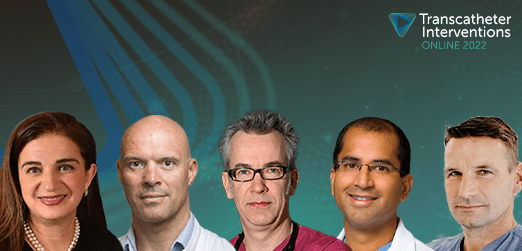Available Courses
A Race Against Time: Accelerating the Adoption of GDMT in Heart Failure
- Not accredited
Published:
Learning objectives
- Recall guideline recommendations for the use of NT-proBNP in heart failure
- Describe current practices in heart failure diagnosis and the impact on treatment outcomes
- Develop an optimised approach to the timely diagnosis and management of heart failure
Achieving Lipid Targets & Managing CV Risk: Reassessing our way with Statins
- 1.00
Published:
Learning objectives
- Recall prevalence of patients who are statin uncontrolled/intolerant
- Define the additive benefit of combination treatment compared with statin intensification
- Name the non-statin LLTs offering proven CV protection
- Identifying patients with indication for novel non-statin therapy
- Initiate lipid-lowering strategies proven to lower future CV events
Advanced Approaches to Combined Epicardial and Endocardial Strategies – From New Consensus to Practice
- 1.00
Published:
Learning objectives
- Identify patient populations who may benefit from hybrid ablation
- Summarise the existing rationale and evidence for hybrid ablation beyond atrial fibrillation
- Understand how to integrate left atrial appendage exclusion in atrial ablation approaches
- Examine key aspects of new consensus recommendations for hybrid ablation
Advancing Patient Care in Hypertrophic Cardiomyopathy
- 0.50
Published:
Learning objectives
- Recall recent trial data for novel disease modifying therapy in HCM
- Describe the evolving guideline directed approach to managing HCM
- Develop an expert-led approach to implementing novel therapy in clinical practice
AF Stroke Prevention – Applying New Guidance in the Real World
- 1.00
Published:
Learning objectives
- Recall the risk of ischaemic stroke in AF patients
- Compare therapeutic efficacy and risk between left atrial appendage closure and oral anticoagulation in atrial fibrillation
- Review European guideline updates on the use of left atrial appendage closure in atrial fibrillation
- Summarise the clinical evidence behind non-pharmacological approaches to stroke prevention in atrial fibrillation
An Expert Approach to Cardio-Renal Protection in CKD
- 2.00
Published:
Learning objectives
- Recall clinical evidence and guidelines for the management of CKD patients without diabetes
- Describe current gaps and barriers in evidence-based management for CKD without diabetes
- Apply evidence based-management strategies to a case study
- Use expert-led guidance to develop an optimal management approach to CKD patients without diabetes
Cardiac Amyloidosis: Emerging Diagnostic and Treatment Approaches
- 1.00
Published:
Learning objectives
- Understand the nature of amyloidosis and its effects on various organs, particularly the heart
- Distinguish between light-chain (AL) amyloidosis, wild type TTR amyloidosis and hereditary TTR amyloidosis in terms of their clinical manifestations and their different treatments
- Recognise the novel challenges of managing heart failure in cardiac amyloidosis, including both medical management and the role of devices
- Understand the critically important interaction between haematologists and cardiologists in the therapy of AL amyloidosis
- Develop an understanding of novel therapies currently in clinical trials of TTR and AL amyloidosis
- Identify their own roles and responsibilities in the management TTR and AL amyloidosis as part of a multidisciplinary team
Challenges in ATTR Amyloidosis: An Expert Debate
- 1.00
Published:
Learning objectives
- Comprehend the unique challenges posed to cardiologists who encounter patients with ATTR amyloidosis
- Initiate first steps in diagnosis of suspect individuals in accordance to latest guidance
- Have enhanced awareness of the disease trajectory of patients with a mixed ATTR phenotype
- Recall the limitations of existing therapies for ATTR-CM
- List the advantages of emerging classes of agents being evaluated in ATTR-CM
Most Recent
Medical Options for Advanced HFpEF/HFmrEF Patients: An Expert-Guided Virtual Ward Round
- 1.00
Published:
Learning objectives
- Describe the current limitations of HFmrEF/HFpEF GDMT in advanced patients
- Select appropriate patients for advanced medical therapy
- Recall recent trial data for novel therapeutic approaches
- Use expert guidance to develop an evidence-based approach to managing advanced HFmrEF/HFpEF
The Bigger Picture: An Expert Assessment on the True Impact of ATTR-CM
- 1.00
Published:
Learning objectives
- Recall the most recent epidemiological data on ATTR-CM incidence and diagnostic trends
- List red flags indicating the presence of ATTR amyloidosis
- Identify patients who should undergo detailed diagnosis work-up or referral
- List the advantages of emerging classes of agents being evaluated in ATTR-CM


















